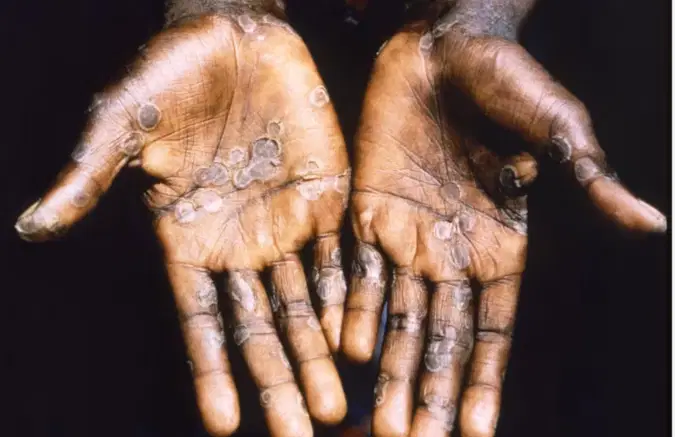August 20, 2024
By Adedoja Adesoji
The World Health Organization stated on Tuesday that the mpox outbreak should not be compared to Covid-19, as there is already substantial knowledge about the virus and effective ways to control it.
The Clade 1b strain, which prompted the UN agency to declare a public health emergency of international concern (PHEIC), still requires further research. However, according to Hans Kluge, the WHO’s European director, the spread of mpox can be contained.
In July 2022, the WHO declared a PHEIC due to the global outbreak of the less severe Clade 2b strain of mpox, primarily affecting gay and bisexual men. This declaration was lifted in May 2023.
Kluge emphasized that “Mpox is not the new Covid.”
He reassured that mpox can be managed effectively. In Europe, for instance, measures to completely stop its transmission are in place, he said during a media briefing in Geneva via video link.
He noted that two years ago, Europe successfully controlled mpox through active engagement with the most affected communities, robust surveillance, thorough investigation of new cases and their contacts, and sound public health advice.
“Behavioral changes, non-discriminatory public health actions, and mpox vaccination played crucial roles in managing the outbreak,” Kluge added.
Kluge also stated that the general population’s risk remains low.
When asked about potential lockdowns in the WHO European region, he clarified, “Are we going to go into lockdown because of mpox? The answer is clearly ‘no’.”
He explained that the main mode of transmission is through close skin-to-skin contact, though the possibility of transmission through droplets from an infected person, particularly with oral blisters, exists in close settings such as homes or hospitals.
“The transmission methods are not yet fully understood, and more research is needed,” he said.
WHO spokesman Tarik Jasarevic indicated that the organization does not recommend mask-wearing or mass vaccination. Instead, vaccines are suggested for use in outbreak scenarios for high-risk groups.
The WHO declared an international health emergency on August 14 due to a rise in Clade 1b cases in the Democratic Republic of Congo and its spread to neighboring countries.
